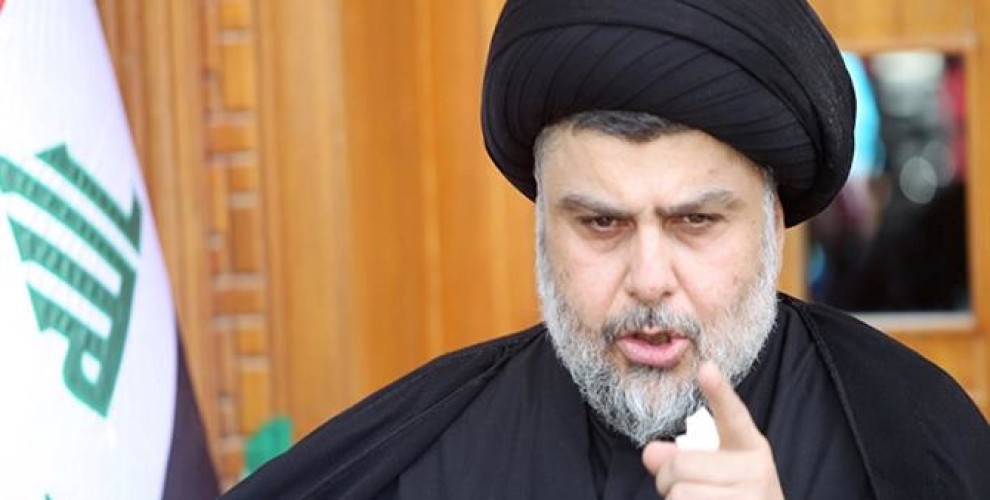Will Iraq have a government?
Talks are going on but no government coalition is in sight
Talks are going on but no government coalition is in sight

The elections have been held on 12 May in Iraq. Yet talks about a new government are already underway and far from achieving a satisfying conclusion.
Both in Iraq and Bashur (southern) Kurdistan many have been the objections to the results, especially in Kurdistan.
The six parties that had objected to the election results in the Kurdistan Region are still discussing whether to join the parliament separated or as a single list.
The winner of these elections was the Sairoun coalition led by the by Shia clergy Moqtada al-Sadr and the Communist Party of Iraq. The coalition got 54 of the 329 seats in Baghdad.
Dana Omer writes in RojNews, that al-Sadr is well known for his stance, but has regain prominence last year thanks to an anti-corruption actions and protests.
In April 2003, the Sadr Office, founded by the clergy’ supporters in the city of Sadr, began to work.
Health, food and clean water were the main services they provided. It is important to remember that after 2003, residents of Sadr city came together and elect a neighborhood council and a municipal council to represent the city of Sadr.
The Sadr Office did not like this, and tried to remove the new regional council by occupying it for several weeks with the support of the Sadrci Mehdi Army. They wanted to replace the people’s council with another one, of their selection. The elected council could continue its task thanks to the removal of Sadrists by American forces. Nevertheless, American and Iraqi forces could not prevent the Sadr Office and the Mahdi Army from continuing their actions in Sadr city.
Moqtada al-Sadr was constantly criticizing American presence in Iraq. He said that the primary purpose of the Mahdi Army was to restore the stability of the country.
Although al-Sadr ultimately had in mind a theocracy for Iraq, he expressed his desire to establish an 'Islamic Democracy'. al-Sadr wants to become a role model for Iraqi poor Shia Muslims by combining Iraqi nationalism and Shia belief.
No doubt al-Sadr is quite popular, and some Iraqis see him as a symbol of resistance to the American occupation.
Al-Sadr's supporters stood next to the United Iraqi Alliance, part of the Shia political bloc in parliament in the December 2005 elections. But in November 2006, al-Sadr declared that he was boycotting the Iraqi government while at a summit in Jordan led by prime minister Nouri al-Maliki and George Bush.
The boycott lasted for two months. In April 2007, al-Sadr called for a rally in the Shia sanctuary of Najaf, requesting Nuri al-Maliki to agree on a timetable for the withdrawal of US forces from Iraq.
Since then, conflicts have continued between Sadr's loyal warriors and the American and Iraqi forces. Thousands of people have been killed, and many have been wounded.
There is ambiguity in what the Sadr movement has become, but it is becoming clear that it is an increasingly influential religious party.
Al-Sadr said that when the action of the fighters was obstructed, he moved to the city of Kum in Iran in August 2008.
Al-Sadr turned to Najaf in January 2011 after getting a good results at the parliamentary elections in 2010.
As it appeared clear that no party and coalition in Iraq can form a government alone, al-Sadr must build a coalition government with other parties or coalitions.
Fatah Coalition
The Fatah Coalition, also known as the "Fatah Pact", was formed by Hadi Amiri to participate in the elections in 2018.
The Fatah Coalition achieved the second place, winning 47 seats across Iraq. This coalition is close to Iran and has the support of the military force Hashdî Shebi which is also house of the Bedir Organization (Shia militia force), headed by Hadî Amerî.
The State of Law
Nuri Maliki’ State of Law coalition, got 26 deputies. Maliki and Hadi Amiri are close to Iran.
Heydar Ebadi Nasr Coalition got fourth with 42 deputies. This coalition is close to the US.
As negotiations continue to set up a new government after the election results, there is no clear picture of what will actually emerge from these talks.
After the election results were officially announced, the Iraqi Federal Court should have ratified such results and then the Iraqi President, Fuat Masum should have given the Parliament President, Semil Cuburi the mandate to call on the winning coalition to set up a new government.
Since these steps have not been taken, it is not clear how the coalition negotiations will proceed.
The first party must obtain approval from at least 165 parliamentarians in parliament to set up a new government within 15 days.
Kurdish parties
The Kurdish parties, which got 58 deputies, are debating how to take part in government talks and what to do.
PUK and KDP sent delegations to Baghdad and joined the coalition negotiations. Clearly Kurds could be the most effective force if they join Parliament as a union or a single list.
While all these talks were going on, the Iraqi parliament passed two resolutions on the elections, stirring up new debates.
First, it decided to not accept the votes of people living abroad and in refugee camps.
Second, the Iraqi Parliament has decided to count 10 percent of the votes by hand.
The Parliament session also asked to removed from their charge members of the Iraqi Independent Supreme Electoral Commission.